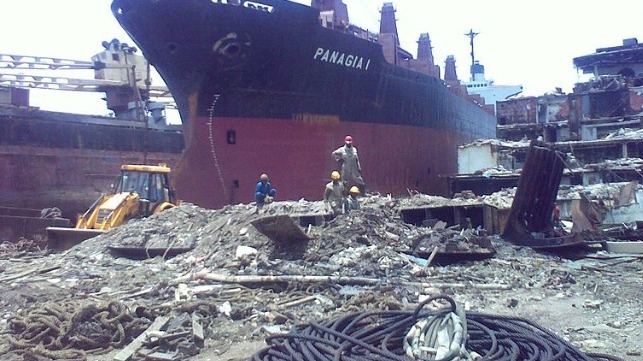Alang's Shipbreakers Consider Branching Out into Car Scrapping

Far away on India's western coast, a small town has been in the headlines for some time now. Alang, situated in the Indian state of Gujarat, is the largest graveyard for ships all over the world, handling about 40 percent of the world's scrap tonnage.
Now, Alang’s shipbreaking yards are seeking to diversify, capitalizing on low labor costs and proximity to steel plants in the region. The Indian government is evaluating a plan to disassemble and recycle end-of-life vehicles at this port town in Gujarat’s Bhavnagar district.
The proposal is being drafted by an inter-ministerial panel, and a presentation has already been pitched to the Indian Prime Minister for drafting a scrapping policy. The panel has already finalized its report, according to multiple government officials. Their hope is to maximize the use of the existing infrastructure already in place at Alang and help use the cheap scrap steel extracted as input for India's manufacturing sector.
Major Indian steelmakers like Tata Steel and the Liberty group are looking to enter the scrap recycling segment. Tata Steel has already set up a recycling plant in nearby Rohtak, Haryana.

that matters most
Get the latest maritime news delivered to your inbox daily.
Backing for the initiative has also come from The Ship Recycling Industries Association (SRIA), which plans to double the steel scrap output to 5 million light displacement tons (LDT) from the present 2 million LDT. (LDT refers to the weight of a ship’s hull, machinery, equipment, and spares, and it is the standard unit of measurement for scrap tonnage.)
The proposal also includes a plan to ensure the smooth functioning of the shipbreaking industry in India. The association also wants recycling yards to be transformed into an independent body under the National Authority for Recycling of Ships that is managed by India's Shipping Ministry. This will reduce the number of agencies administering Alang, which delays finalization of questions relating to the industry, according to the association.
